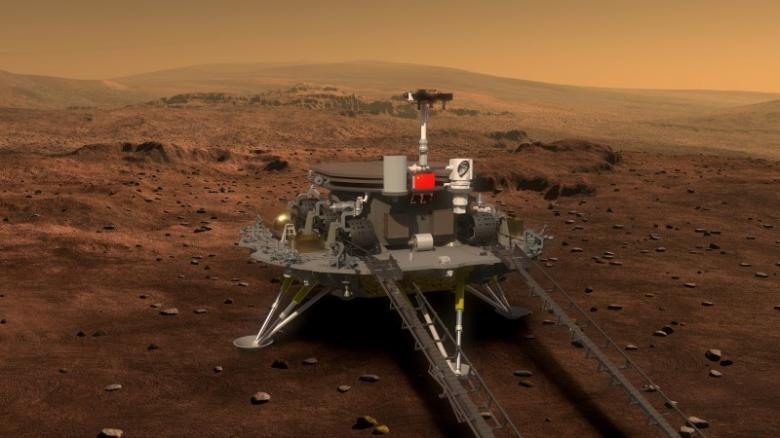The Independent's journalism is supported by our readers. When you purchase through links on our site, we may earn commission.
Life on Mars can only exist 'far beneath the surface', scientists say
Red Planet is up to 10,000 times drier than the driest deserts on Earth

Your support helps us to tell the story
From reproductive rights to climate change to Big Tech, The Independent is on the ground when the story is developing. Whether it's investigating the financials of Elon Musk's pro-Trump PAC or producing our latest documentary, 'The A Word', which shines a light on the American women fighting for reproductive rights, we know how important it is to parse out the facts from the messaging.
At such a critical moment in US history, we need reporters on the ground. Your donation allows us to keep sending journalists to speak to both sides of the story.
The Independent is trusted by Americans across the entire political spectrum. And unlike many other quality news outlets, we choose not to lock Americans out of our reporting and analysis with paywalls. We believe quality journalism should be available to everyone, paid for by those who can afford it.
Your support makes all the difference.Mars is almost devoid of surface water with areas that are drier than the driest deserts on Earth – so any life would have to be “far below the surface” to survive, scientists have said.
An international team of researchers looked for evidence of rust on metals in meteorites that have hit the Red Planet as a way to gauge the level of moisture.
A previous study found evidence that very salty water might be able to condense on the Martian surface.
But the new research, led by Stirling University academics, suggests only a tiny amount of liquid is being produced in this way.
Dr Christian Schröder, a lecturer in environmental science and planetary exploration at the university, said: “This latest research reaffirms just how dry the environment is today.
“As our data show, this moisture is much less than the moisture present even in the driest places on Earth. For life to exist in the areas we investigated, it would need to find pockets far beneath the surface, located away from the dryness and radiation present on the ground.”
Mars was once very different.
“Evidence shows that more than three billion years ago Mars was wet and habitable,” Dr Schröder said.
In a paper in the journal Nature Communications, the researchers said Mars was likely to have been extremely dry for millions of years.
Water is believed to be the most important pre-requisite for life.
The study used information from the Mars Exploration Rover Opportunity about a cluster of meteorites at the Meridiani Planum, just south of the planet’s equator.
They used this to calculate a chemical weathering rate for Mars for the first time, specifically how long it takes for rust to form from the metallic iron present in meteorites.
It takes at least 10 and possibly up to 10,000 times longer on Mars to reach the same levels of rust formation than in the driest deserts on Earth.
Join our commenting forum
Join thought-provoking conversations, follow other Independent readers and see their replies
Comments